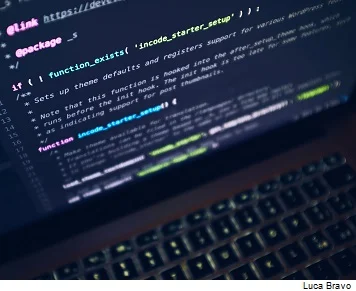FAQ - MAIN MENU
What are the advantages of using computers in the financial markets and how does CCM leverage them?
Human beings have limited short-term memory capacity, and thus, tend to get overwhelmed when trying to consider large amounts of information in a fast-moving and stressful environment. Since computers can retrieve and process large amounts of data almost instantaneously, their ability to recall, calculate, and summarize, especially in stressful environments, is far superior to humans.
Computers can only follow a specific set of finite instructions, and thus, still struggle to recognize patterns or "see the big picture", especially in novel, complex, and unique situations. Humans are not limited by the bounds of computer programs, and thus have the ability to match countless cognitive processes to the present-day situation, no matter how complex, providing them with a unique ability to intuitively see the big picture. Humans have the ability to adapt quickly and "write new cognitive code" if needed; computers rely on a much more-bounded, fixed set of instructions, known as programs or code.
For example, it would be very difficult to have written a computer code prior to the 9-11 attacks on the World Trade Center that would have been able to process such a novel, unique, and unexpected event. Humans, especially experts with years of experience, can add value to the inherent strengths of computers, just as computers can assist humans when making complex decisions based on extremely large data sets.
The excerpts below are from a white paper, Complex Operational Decision Making in Networked Systems of Humans and Machines: A Multidisciplinary Approach (2014) Chapter: Chapter 2 Computing and Decision Making Today:
While improved information availability can improve the quality of decision making, more information alone is not sufficient.
Thus, a key challenge is to build task and context models that enable data to be filtered and processed into “useful information”.
Humans and computation have different strengths in what they accomplish and there are several aspects of human decision making that can benefit from computer-aided systems, such as cognition, recognition of errors in judgment and task allocation. Similarly, there are several aspects of computer processing that can benefit from human guidance, such as prioritization, dealing with unusual or unexpected situations, understanding social and cultural context, and taking environmental and contextual information into account. The committee finds that the computational assists to human decision making are best when the human is thought of as a partner in solving problems and executing decision processes, where the strengths and benefits of machine and humans are treated as complementary co-systems.
Decision making tends to be context dependent; it often requires understanding of not only the observed or experienced situation but also of the relevant history and background.
Computers are more capable than humans in finding and “digesting” huge amounts of data.
But the decision-making capabilities of machines are limited, in part, because their models of factors influencing decisions are limited; for instance, their models can only partially represent such human cognitive abilities as seeing the whole picture in context, including special circumstances (Hoffman et al., 2002); and being able to incorporate the implications of unexpected events and situations.
Human beings can be inconsistent at decision making, sometimes displaying excellence, and sometimes being prone to errors and biases. Recognition of this inconsistency has led humans to find ways to improve decision making by formalizing the process, such as through analytical methods and improved understanding of how humans address decision making.
The committee believes it has been shown that technology can genuinely improve complex decision making by humans in many situations.
FAQ - MODEL
Important Disclosures: While the CCM Market Model is based on sound economic and investment principles, there is no guarantee any of the objectives, including limiting account drawdowns, will be met in the future. The terms odds and probabilities also speak to uncertain outcomes. Please see additional disclosures for more information.


